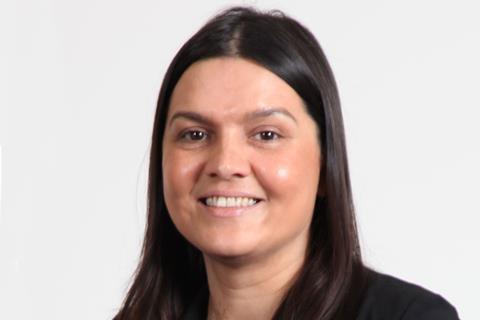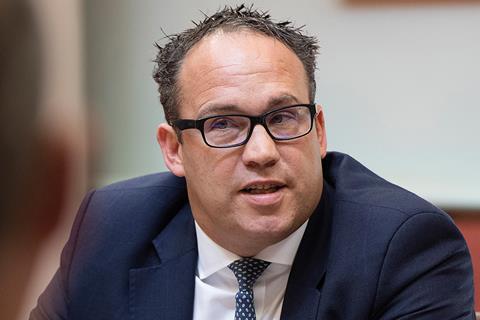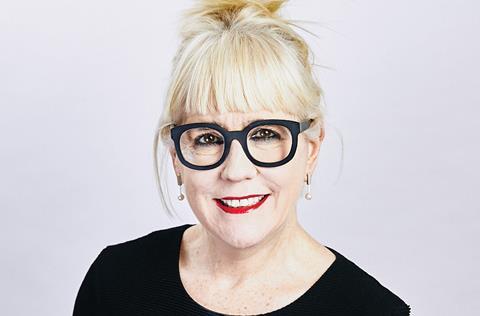Good news at last – the professional indemnity insurance market is softening and there may be new capacity on the horizon. Eduardo Reyes reports from the latest Gazette roundtable
At the table
Top row (l-r): Jason Nash, Browne Jacobson; Ed Pickard, Miller; Emma Pearmaine, Ridley & Hall
Middle row (l-r): Brian Boehmer, Lockton; Simon Thomson, Law Society; Zarina Lawley, Miller
Bottom row (l-r): Stephen Ward, Council for Licensed Conveyancers; Patrick Bullen-Smith, Hera Indemnity; Natasha Lewis, Lewis Denley; Eduardo Reyes, Law Society Gazette (chair)
Not pictured: Marianne McMahon, Norton Rose Fulbright; Laura Devine, Laura Devine Immigration

The need to secure professional indemnity insurance is a shared experience for all private practice solicitors. In that context, the Law Society’s latest annual financial benchmarking survey made grim reading. The cost of the compulsory level of cover, it found, typically rose 10%-30% in 2021/22, even for firms with good or clean claims records. And that increase followed on from several years of a hard market that saw premiums rise dramatically and capacity come under strain.
'Insurers are now actually wanting to look at new business, want to increase the amount of business they currently write'
Patrick Bullen-Smith, Hera Indemnity
But the survey data is retrospective, and the experience of the market thus far in 2023 is cause for cautious optimism. ‘I’d say it very quietly, I think the market’s improving,’ broker Hera Indemnity’s Patrick Bullen-Smith begins. ‘The market is definitely softening for other professions,’ he adds, though 1 April renewals for law firms may be too soon to see a marked improvement: ‘Insurers are now actually wanting to look at new business, want to increase the amount of business they currently write. There are one or two new market entrants… so there is light at end of the tunnel for good, well managed firms.’
Lockton’s Brian Boehmer concurs. In every part of the market, he says, ‘conditions are improving’. Most participating insurers have got an appetite for growth, which is beneficial and can only help. He adds: ‘There’s new capacity waiting in the wings, one of which is just waiting redomicile of its regulatory responsibilities from Malta to Belgium and they’ll be up and running.’
'The bit that insurers are worried about, understandably, is that if there is an economic downturn and we have a housing crisis, the claims will follow'
Zarina Lawley, Miller
The softening of the market might have come sooner, Boehmer concludes, were it not for the fact that ‘the economic cloud and geopolitical situation is obviously going to play a part in this renewal cycle. Ultimately, underwriters are going to be concerned about the impact of the economy and the potential impact of recessionary claims’.
‘The market is definitely changing,’ Miller’s Zarina Lawley adds, noting that in 2023: ‘Insurers are probably looking at 5% to 10% increases.’ Conveyancing practices continue to attract close attention, though, she adds: ‘The bit that insurers are worried about, understandably, is that if there is an economic downturn and we have a housing crisis, the claims will follow. History tells us [that] in the last housing crash, the lenders went after the lawyers. [Insurers] expect history to repeat itself.’

There are two moderating factors, Lawley says: ‘There’s a lot more control over the lending that banks do. And actually, law firms themselves have to follow much more stringent rules when it comes to conveyancing.’
Conveyancing work is at the centre of many of the issues that insurers and law firms are dealing with – and there is a complicated relationship between the two, Emma Pearmaine, managing director at Yorkshire firm Ridley & Hall, explains: ‘We got out of the recession by virtue of the growth in the conveyancing market, as did a lot of high street practices. And we came out of it very well. But of course the knock-on effect is your PII.’
The need to deal with that impact has changed her firm’s strategy: ‘Business planning, certainly over the last eighteen months, has been to proactively work to increase all areas of the business. [That is] simply so we can manage the proportion of conveyancing work that we do, so that we can manage our PII renewals and increases in premiums, and make sure that we’re still attractive to the insurance market.’
On renewing last October, Pearmaine’s firm’s PII premium rose 30%. ‘As I talk to colleagues at other high-street practices, they’re all saying the same,’ she relates. ‘What’s interesting is that it’s the primary level that’s increased and not the top up layer,’ she adds, while noting that the cost of cyber-insurance has tripled, and that cyber cover can itself be a precondition for obtaining PII.
The aftermath is not all bad, Pearmaine notes: ‘It has positively impacted the way that we do business… we’ve already been working with our brokers in readiness for this year on managing risk, and thinking about how we manage future risk and how the business has changed post pandemic.’
'A couple of insurers have relaxed that approach in this renewal. So, providing there isn’t a tsunami of claims that emanate from conveyancing, your renewal experience may not be quite as bad in October'
Brian Boehmer, Lockton
Certainly, a deterioration in the property market, or the higher prices paid during a property boom, can be a red flag for insurers.
There is, it is noted, a range of 25%-33% for the proportion of conveyancing work that commonly triggers insurers’ concerns about a practice. Hitting that proportion can be a red flag. However, Boehmer notes: ‘A couple of insurers have relaxed that [approach] in this renewal. So, providing there isn’t a tsunami of claims that emanate from conveyancing, your [renewal] experience may not be quite as bad in October [the traditional date for renewals], on the simple basis that some insurers [have] relaxed their tolerance.’

Stephen Ward, director of strategy and external relations at the Council for Licensed Conveyancers (CLC), hopes that ‘this is going to be an easier renewal season for CLC firms than the last two, three years have been’, based on his conversations with the SRA and CLC members.
‘We’ve introduced some new rules that will bite at this renewal for the first time, as part of our participating insurers agreement,’ Ward continues. ‘Brokers have said that if the insurers can get their proposals in by 1 May then they will do everything they can to get quotes out by 1 June. And, that will really help… firms… if they feel they need to shop around or do more work to improve their proposal and make that clearer.’
Lawley, whose firm brokers insurance for many CLC members, notes that specialisation has helped those firms’ claims records, because ‘they’re the experts in that field. They’re not dabbling [and] they seem to have a lot more technology’.
Disunited nations – PII globally
During research for a new report, IBA International Principles on Professional Indemnity Insurance for the Legal Profession, the working group found there to be little global uniformity. Where a requirement to obtain PII does exist, there is no consistency in terms of coverage. The report, whose working group members included former Law Society president Christina Blacklaws, established eight areas of focus for national regulatory bodies.
1. Independence – requiring lawyers to have insurance can provide clients with assurance that their lawyer will act independently.
2. Competence – malpractice insurance can protect lawyers against professional liability claims, but it may not be necessary for such insurance to be mandatory, for example, in fields where the risk of mistakes and exposure for negligent results is low.
3. Integrity – lawyers should maintain the highest standard of honesty, integrity and fairness towards clients, the court and colleagues. Acting in accordance with these standards mitigates the risk of fraud allegations, which are excluded in many policies.
4. Risk – requiring lawyers to purchase and maintain PII can mitigate the financial risks they face from cyber-attacks and investigations into the handling of client funds.
5. Responsibility – lawyers have a responsibility to familiarise themselves with local requirements for PII and any obligations to disclose this information.
6. Communication – lawyers should treat client interests as paramount. It is therefore considered good practice in many jurisdictions for lawyers to ensure that they secure adequate insurance cover against claims based on professional negligence or malpractice.
7. Confidentiality – attorney-client confidentiality is a core value of the legal profession; lawyers must comply with all legal and ethical requirements related to confidentiality, and this applies to both present and former clients.
8. Maintaining public confidence – regardless of PII status, legal practitioners have a role to play in upholding public confidence in the judiciary. Bar associations and regulatory bodies should emphasise to lawyers the duties owed to their clients to ensure that the public maintains confidence and trust in the legal profession.
SOURCE: IBA 2023
Feeling seen
Nevertheless, the experience of some firms is that they are trying to do everything right, have a good or clear claims record, and are still seeing significant increases in premiums.
Natasha Lewis, managing partner at Lewis Denley, a firm established five years ago, says: ‘We utilise a lot of technology in our business and we even developed our own software. We’d never had a claim and last year my PII tripled.’
The firm’s property practice had exceeded 30% of turnover, she notes: ‘As a result, ‘I found myself pivoting the business… hiring experienced partners from other law firms, bringing them into our law firm to start up new departments – private client, family’.

Bullen-Smith suggests that if a firm’s risks are not being articulated clearly, ‘it might be worthwhile asking to have a conversation with the underwriter’ direct.
Is the market’s response to firms’ property practices a fair one? Jason Nash, partner at Browne Jacobson, says insurers are basing decisions on past experience. ‘I’ve been in practice for two or three recessions, and every time there’s been a recession there’s been a huge spike in claims. So, if the country goes into an economic decline as it did in 2007, inevitably there will be more claims.’
The working arrangements adopted during Covid lockdowns were a concern, he adds, because of changes to supervision and security. It was, Nash notes, ‘an incredibly difficult time for people to cope with and we suspected claims would arise from that’. So far, he says: ‘We’ve seen some, but we haven’t seen as many as we thought there might be.’
Regarding the additional wills drafted during the pandemic, he adds, claims have not yet arisen as many testators are still alive. He also identifies divorce settlements as a risk area for claims.
What else? ‘Lawyers aren’t great with IT generally. They don’t invest enough in technology and they don’t protect themselves,’ Nash notes. ‘I dealt with a claim recently where the law firm had outdated software, they got hacked. They’d been told their software was no longer going to be supported by Microsoft yet they just didn’t update it. Someone broke into their system and nicked 100GB of data – all their client data. Three hundred clients were impacted.’
Also relevant here, frustratingly, is ‘clients’ inability to preserve their own IT’, Nash adds. Claims can arise when a client has sent money that has not arrived in a law firm’s account.
The main purpose of cyber insurance, Ward points out, is the technical support provided. ‘It’s about… rebuilding your systems, getting back online and, even if you’ve got outsourced IT, they aren’t the sort of experts you need in this sort of event. What the insurance buys you is that very particular expertise that you just can’t do without in these sorts of circumstances.’

Permaine adds: ‘We also look at… directors’ and officers’ insurance and other insurance policies – and yet the headlines in the news are always just PII and whether we can afford to practise. But it’s not just PII – it’s insurance as a whole.’
Adding to the risks for insurers, Pearmaine says, is the emergence of law firm ‘aggregators’, or consolidators. ‘Quite a few of them have gone “pop” in the last twelve, eighteen months,’ she observes. Metamorph’s demise is perhaps the most high-profile example.
Simon Thomson, regulatory policy adviser at the Law Society, adds: ‘The problem I’m aware of is that there are a lot of firms that want to close but are faced with 300% run-off premiums, and whereas in the past they might have looked to be acquired by another firm and possibly even get some money, now they’re seen as a liability.’ He says: ‘It’s becoming more common, rather than having mergers and [successor] practices for firms to take over the business of another firm and put them into run-off, so that any claims relating to their earlier work are dealt with by the run-off insurer.’
Wellbeing
The SRA made law firm culture a focus of a thematic review, which reported in February. It is one sign of the central importance of wellbeing in the legal profession, now firmly viewed as a risk factor, a potential source of claims, and a matter of regulatory concern.
'The insurance companies are more interested now in what your wellbeing activities are'
Laura Devine, Laura Devine Immigration
‘I was at a conference at the weekend in Vienna speaking on wellbeing,’ Laura Devine, managing partner of Laura Devine Immigration, relates. ‘People were saying, “wellbeing is very expensive”. I said, “well, it’s more expensive if you don’t have [a wellbeing policy], because then you have that risk of unhappy staff or stressed staff and unhappy clients.’ As a result, she concludes: ‘The insurance companies are more interested now in what your wellbeing activities are.’
This roundtable was kindly sponsored by Lockton, Hera Indemnity and Miller





































No comments yet